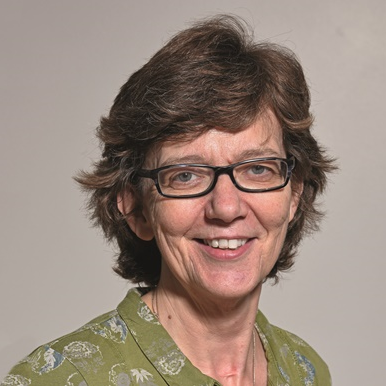
Anne Lingford-Hughes
Professor Anne Lingford-Hughes is Professor of Addiction Biology and Head, Division of Psychiatry at Imperial College London and a Consultant Psychiatrist at Central North West London NHS Foundation Trust. She graduated in medicine from Oxford University, completed her PhD at Cambridge University and trained in psychiatry at The Bethlem and Maudsley Hospitals and Institute of Psychiatry. Her research has focused on using neuroimaging, pharmacological and behavioural challenges to characterize the neurobiology of addiction to improve relapse prevention. She leads an MRC funded PhD programme (MARC) to produce future clinical addiction academic leaders in the UK.
Understanding craving: what are its neural networks and implications for treatment?
Background: Craving is a complex multi-dimensional phenomenon. Although it is widely accepted that craving is a subjective state associated with dependence, its definition, causality and importance remains a controversial subject. Despite being frequently cited as maintaining or causing relapse to drug abuse, research into craving has received relatively little attention.
More recently, neuroimaging techniques such as positron emission tomography (PET) and functional magnetic resonance imaging (fMRI) are being applied to study cerebral activity and pharmacology associated with craving. Physiological and subjective ratings of the multiple aspects (eg. positive reinforcement, negative reinforcement, urge to use) of craving enable correlations to be performed to assess whether particular dimensions of craving are associated with specific pattems of activation.
Methods: (1) PET Studies. We have used validated 015-labelled water technique to measure regional blood flow during control and craving conditions in abstinent alcohol and opiate dependent subjects. Non-dependent alcohol drinkers have also been studied. Subjects were scanned whilst they listened to ‘craving’ or ‘neutral’ audiotapes (opiate) or looked at their favoured alcoholic or neutral drink (alcohol). Each condition was repeated, randomly, 6 times. (2) fMRI Studyr Abstinent alcohol dependent subjects and non-dependent drinkers have been studied. The stimuli, lasting for 5 minutes, consist of either alternating pictures (30 secs) of their favoured alcoholic or neutral drink, or a mix of different alcohol and neutral drinks or an audiotape of a ‘craving’ or ‘neutral’ script. In PET and fMRI studies, pre and post each condition, questionnaires are completed to rate the multiple aspects of craving. Continuous physiological monitoring (HR, BP) is also performed. Results: All studies are currently ongoing and full analysis is still underway.
Conclusions: Neuroimaging studies have revealed patterns of cerebral activation associated with craving. Determination of these will increase our knowledge about the different aspects of craving and also inform treatment of drug and alcohol dependence.